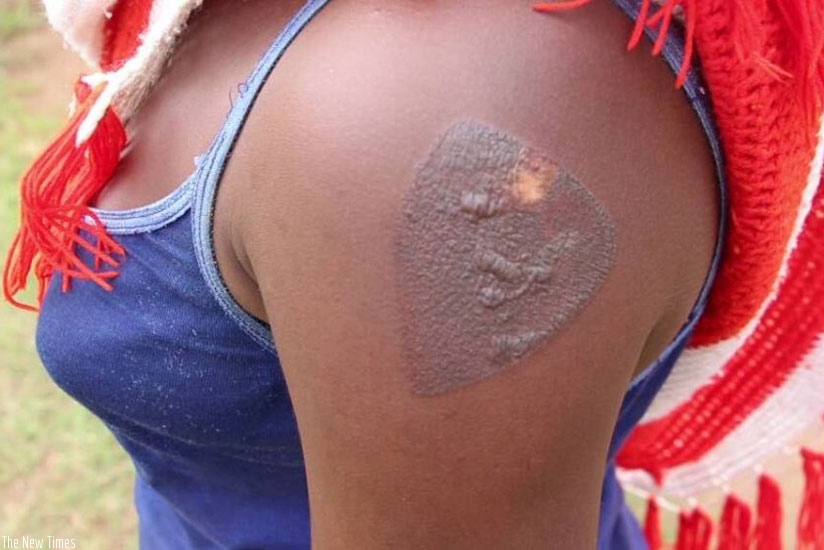House maids: One girl’s chilling story
Fifteen-year-old Cynthia Umutoniwase left her home in Nyamagabe for Huye District in search of a job.

Umutoniwase was burnt by her employer. (A.M. Dushimimana)
